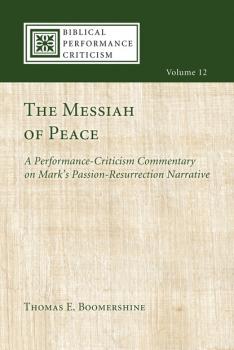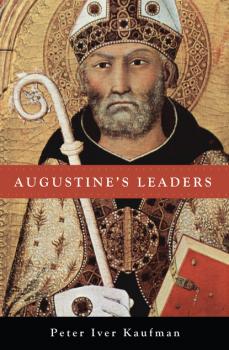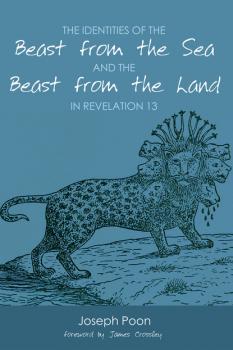MREADZ.COM - много разных книг на любой вкус
Скачивание или чтение онлайн электронных книг.The Messiah of Peace
The telling of Mark's story of Jesus as the Messiah of peace in the decades following the Roman-Judean war announced a third way forward for Diaspora Judeans other than warfare against or separation from «the nations.» Mark's Gospel was the story of the victory of a nonviolent Messiah who taught and practiced the ways of a new age of peace and reconciliation in contrast to the ancient and modern myth of redemptive violence.
The Messiah of Peace is a performance-criticism commentary exploring a new paradigm of biblical scholarship that takes seriously the original experience of the Gospel of Mark as a lively story told to audiences rather than as a text read by readers.
The commentary is correlated with the Messiah of Peace website, which features video recordings of the story in both English and Greek. Critical investigation of the sounds of the Markan passion-resurrection narrative reveals the identity of its original audiences as predominantly Judean with a minority of Gentile nonbelievers. Hearing the passion-resurrection story was an experience of involvement in the forces that led to the rejection and death of Jesus–an experience that brought on the challenges inherent in becoming a disciple of the Messiah of peace.
Augustine’s Leaders
In Augustine's Leaders, Peter Iver Kaufman works from the premise that appropriations of Augustine endorsing contemporary liberal efforts to mix piety and politics are mistaken–that Augustine was skeptical about the prospects for involving Christianity in meaningful political change. His skepticism raises several questions for historians. What roles did one of the most influential Christian theologians set for religious and political leaders? What expectations did he have for emperors, statesmen, bishops, and pastors? What obstacles did he presume they would face? And what pastoral, polemical, and political challenges shaped Augustine's expectations–and frustrations? Augustine's Leaders answers those questions and underscores the leadership its subject provided as he continued to commend humility and compassion in religious and political cultures that seemed to him to reward, above all, celebrity and self-interest.
The Great Athanasius
The Great Athanasius is an introductory survey of the life and work of the most dynamic pastor-theologian of the fourth century. From his birth and early years in Alexandria to the «Golden Decade,» the book charts the life and work of Athanasius through a close study of his main writings and other important works. Central to his story is the «Arian controversy,» the Council of Nicea, and the subsequent difficulties that emerged in building a consensus around the «very God, very Man» affirmation of the Nicene Creed. The eventual triumph of the theology of the Nicene Creed was largely due to his tireless efforts, which are carefully chronicled in this work. Though a controversial figure in his own lifetime, through both his theological insight and ecclesiastical leadership, and in his fidelity to his faith convictions, Athanasius proved to be «the great» church father and theologian of his age and one of the seminal Christian thinkers of all time.
Weaving the American Catholic Tapestry
Concerned that American Catholic theology has struggled to find its own voice for much of its history, William Portier has spent virtually his entire scholarly career recovering a usable past for Catholics on the U.S. landscape. This work of ressourcement has stood at the intersection of several disciplines and has unlocked the beauty of American Catholic life and thought. These essays, which are offered in honor of Portier's life and work, emerge from his vision for American Catholicism, where Scripture, tradition, reason, and experience are distinct, but interwoven and inextricably linked with one another. As this volume details, such a path is not merely about scholarly endeavors but involves the pursuit of holiness in the «real» world.
Remembering Lived Lives
Remembering Lived Lives is a religious historiography book that focuses on issues and theorists located primarily in Latin America. Instead of joining the chorus of contemporary European intellectuals like Slavoj Žižek, who insist on a renewed Eurocentrism, this study challenges both historians and theologians to take seriously the work done by theorists located in what Enrique Dussel calls the underside of modernity. This is an interdisciplinary work that opens with Karl Barth's outline for historical-theological study and closes with an analysis of the film The Mission. Written for both the history or theology instructor and student, it deals with subjects like church history, biography as theology, liberation theology as primary source material, photographs, and historical movies.
The Becoming of God
How should we believe in God today? If we look beyond our little lives to the vast cosmos, we may even ask: Why all that? And even if we spiritually feel the universe: Why believe any religion? After all, there are many; and haven't they contributed to the predicament of humanity? Process theology gives provocative answers to these questions: how we are bound by the organic cycles of this world, but how in this web of life God shines even in the last, least, and forgotten event as the Eros of its becoming and as its mirror of greatness; why anything exists: because it is from beauty, for harmony and intensity, and through a consciousness of peace rising from our deepest intuitions of existence. We can change: not only in our thoughts and lives, but even in the way we experience this world. This book introduces such a new way of experiencing, thinking, and living. Based on the fascinating work on cosmology, religion, and civilization of Alfred North Whitehead, this book develops the main theses of process theology and elucidates it as a theopoetics of mutual care for the unexpected, the excluded, the forgotten, and a future society of peace.
Ordinary Saints
How does God manifest himself in the world? Through the righteous lives of his holy people (the saints). As a religion of witnesses, Christianity is dependent upon its saints (defined as activated disciples) to «testify» to the grace of Christ and the kingdom of God. Their lives are walking billboards of the value of Jesus' teaching and authenticity of Christianity as an ancient spiritual pathway. This is a book about saints who are alive now, and whose everyday acts of kindness and goodness announce that God is at work in the world. Like Jesus, their Master, they are the message, the messenger, and the working model of the kingdom of God, in a lesser key. In following Jesus, ordinary saints are willing to give away their lives in order to convey the substance of their faith to a watching world. If ever there was a time when saints need to live courageously for Christ in the world, it is now. But it will take conviction, credibility, and a great deal of audacity. Ordinary Saints explores what it means to be a saint in the twenty-first century, by exploring the depth-dimensions of saints' lives, bodies, emotions, values, and relationships.
The Identities of the Beast from the Sea and the Beast from the Land in Revelation 13
This book aims to identify the beast from the sea and the beast from the land in Revelation 13 by studying their unique link together with the dragon in Revelation 12: the land beast is subordinate to the sea beast, which in turn is subordinate to the dragon. The early sections of the book provide a review of previous scholarship, the influence of Daniel 7 in understanding Revelation 13, and the Leviathan-Behemoth motif in several apocalyptic writings. The core of the book, however, seeks to demonstrate that the relationship of the two beasts and the dragon fits well with the tripartite hierarchy that Georges Dumezil has discovered as one of the dominant structures of relationships in Indo-European mythological traditions. In congruence with the criteria of the three hierarchical levels in Dumezil's system, the dragon concerns the ultimate sovereignty in a supernatural sphere, while the sea beast and land beast are found, respectively, as a warlike figure in a war context and as a figure relating to the economic theme. Based on this finding, the book concludes that the two beasts represent the imperial power and the imperial cult, as most commentators believe.
Stations on the Journey of Inquiry
In this collection, Stations on the Journey of Inquiry, David Burrell launches a revolutionary reinterpretation of how any inquiry proceeds, boldly critiquing presumptuous theories of knowledge, language, and ethics. While his later publications, Analogy and Philosophical Language (1973) and Aquinas: God and Action (1979), elucidate Aquinas's linguistic theology, these early writings show what often escapes articulation: how one comes to understanding and «takes» a judgment. Although Aquinas serves as an axial figure for Burrell's expansive corpus of scholarship spanning more than fifty years, this selection of essays presents other positions and counterpositions to whom his own philosophical theology is beholden: Plato, Aristotle, Cajetan, Kant, Peirce, Moore, Wittgenstein, Sellars, Weiss, Ross, McInerny, and Lonergan. With renewed interest in philosophy of language by postmodern thinkers as well as in the wake of Mulhall's Stanton Lectures on Wittgenstein and «Grammatical Thomism,» the publication of these formative writings proves timely for the academy at large. Burrell invites us to reconsider not only the way in which we conduct an inquiry, but what it is we take language to be and how we take responsibility for what we say.
Jonathan’s Loves, David’s Laments
Jonathan's Loves, David's Laments uses early modern musical interpretations of David's Lament over Saul and Jonathan to deepen the historicist foundations of contemporary feminist and gay relational theologies. After laying out how gay theologian Gary David Comstock connects the story of David and Jonathan to the theology of lesbian theologian Carter Heyward, the argument interrogates both theological and exegetical problems in making those connections, which include contradictory theological stances with regard to modernity and history as well as the indeterminacy of the biblical text. Early modern musical interpretations of the text allow for a double move of engaging the texts through a sensual medium, thus reinforcing queer possibilities for meaning-making from the biblical text, and staying attuned to the fact that the history of interpretation reinforces the indeterminacy of the text, thus keeping queer interpretations aware of the relativizing function of historical difference.









